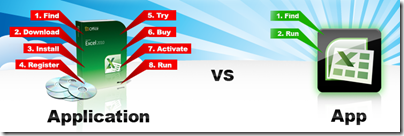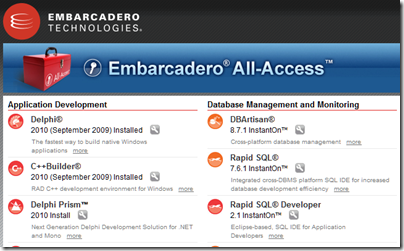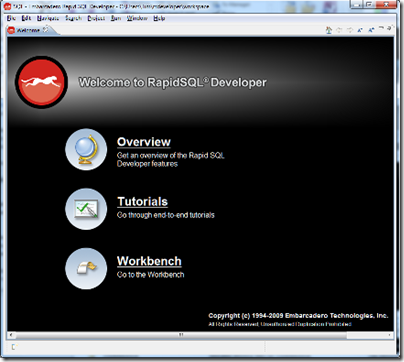I noticed the following remark from Embarcadero’s David Intersimone regarding Delphi, its application builder based on Pascal.
We are putting Delphi (and C++Builder) everywhere this year and over the next 5 years. Today you can use Delphi for Desktop, Client/Server, Multi-Tier, Cloud, Web, Web Services (REST and SOAP). This year you will also be able to build for Macintosh and iOS. Linux is also on the roadmap for the coming years along with Android, Blackberry and Windows Phone 7.
Welcome news; though Delphi enthusiasts are all too familiar with bold promises. Two years ago I interviewed Embarcadero’s CEO Wayne Williams and he promised cross-platform Delphi in 2010; but when Delphi XE appeared last year neither Mac nor 64-bit (another longstanding request) was included.
That said, I am still a big Delphi fan. Mobile is a particularly interesting prospect. I have tried numerous cross-platform mobile toolkits and they all have problems; on the other hand they are improving fast and in a couple of years things like Appcelerator’s Titanium and Nitobi’s PhoneGap may be hard to catch.
Update: what will Delphi’s Android support look like? I would be interested to know whether Embarcadero is working on its own compiler, or whether it is partnering with RemObjects and that what Intersimone is referring to is Project Cooper:
“Cooper” is a new and exciting research project going on in the RemObjects Software Labs, to bring the Oxygene language to the Java and Android platforms. The original Oxygene for .NET set out to bring a modern and “next generation” Object Pascal to the .NET world; Project “Cooper” is taking this endeavor to the next level, expanding the reach of Oxygene to the second big managed platform.
In other words, Project Cooper will compile Delphi code to Java.
Note that Embarcadero officially adopted Oxygene and offers it as its own product called Prism. It seems plausible that the same will happen with Project Cooper. Since Windows Phone is a .NET platform, there is also potential for Oxygene/Prism to target Microsoft’s mobile platform:
Windows Phone 7 – Microsoft’s new Windows Phone 7 uses Silverlight for application development, and did I mention Delphi Prism does Silverlight?
says Jim McKeeth at RemObjects.
What about Delphi on the Mac and on iOS? There is also a possible Oxygene/Prism route here, via MonoMac: Delphi to .NET/Mono to Mac. However, I suspect Delphi developers would be disappointed if this turned out to be Embarcadero’s approach to Mac and iOS support. Programmers choose Delphi because they like compilation to native code.











